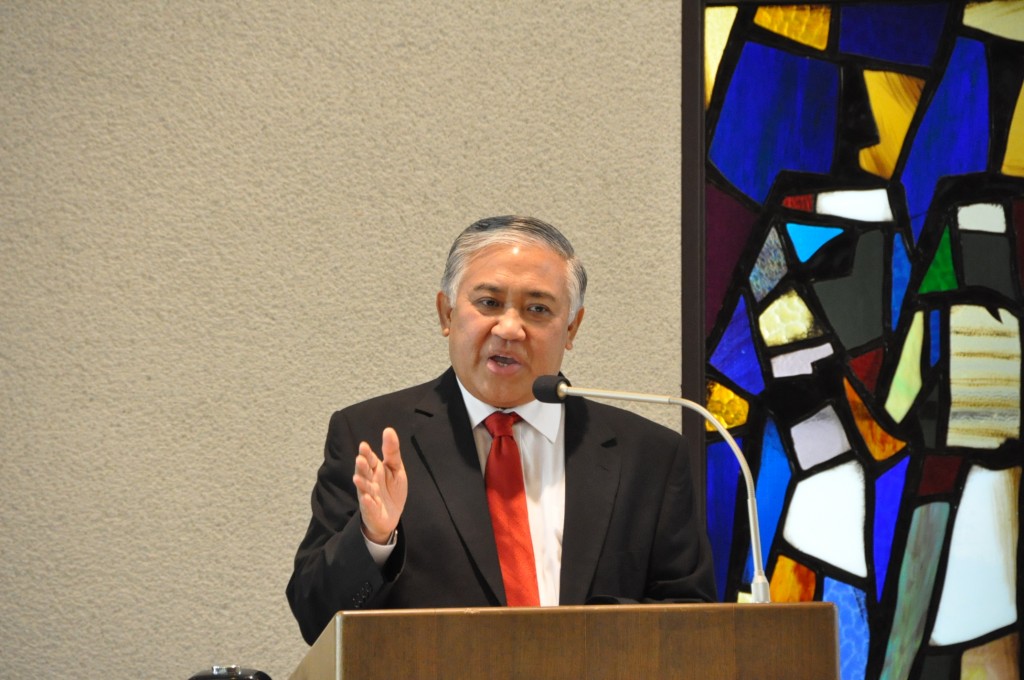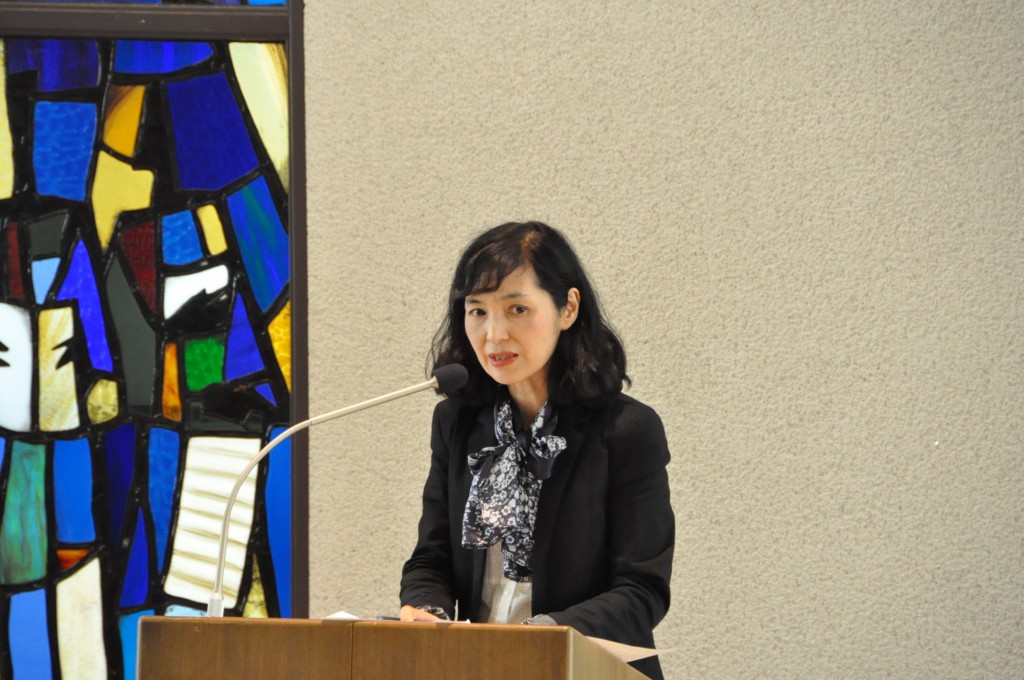Center for Interdisciplinary Study of Monotheistic Religions(CISMOR)Doshisha University
> Public Lectures > Moderate Islam and the Role of Civil Society Movements in Emerging Economies: A Case of Muhammadiyah in IndonesiaPublic Lectures
Public Lecture
Moderate Islam and the Role of Civil Society Movements in Emerging Economies: A Case of Muhammadiyah in Indonesia
| Date: |
2013/07/20 13:30 - 15:00 |
|---|---|
| Place: | Divinity Hall Chapel, Imadegawa Campus, Doshisha University |
| Lecture: | Dr. Din Syamsuddin, Professor of State Islamic University in Jakarta / President of Muhammadiyah, Indonesia |
| Summary: | |
|
The speaker invited to this public lecture was Dr. Muhammad Sirajuddin Syamsuddin, President of Muhammadiyah, Indonesia, and Professor of Islamic Political Thought at the State Islamic University. Dr. Syamsuddin received his doctoral degree in the U.S. and has published a number of books. His lecture focused on the purposes and role of Muhammadiyah in Indonesia. Muhammadiyah is the second largest Islamic civil group in Indonesia, which was established in 1912 with a view to absorbing Western culture to promote the modernization of Indonesia and purifying the faith of individual Indonesian Muslims to true Islam to enhance their sense of moral responsibility. By doing so, Muhammadiyah aims to bring greater happiness to individual Muslims and ensure the stability of social welfare and prosperity of the nation. Specifically, they are promoting multiculturalism and democracy in Indonesia through educational activities. Established before the independence of Indonesia, Muhammadiyah played an important role in helping the country win independence in 1945, and has since been working in cooperation with the government to expedite national development. In this way, Muhammadiyah has maintained a close relationship with the national government and has been supporting the activities of the government, and this distinguishes them from Western civil and social groups. In addition to carrying out educational activities which are the main focus of the organization, they also run medical institutions and offer micro-financing services. Currently they run more than 10,000 Islamic schools, both traditional and modern, in various parts of Indonesia, some of which admit non-Muslim children, as well as several hundred medical institutions. With these institutions, they have made a substantial contribution in educational and medical fields in cooperation with the national government throughout the country. Being the fourth largest economy in East Asia after China, Japan and India, Indonesia is now undergoing rapid economic development and Dr. Syamsuddin insisted that the country has a responsibility to strengthen collaborations and partnerships among countries in the region. Aware of this responsibility, Muhammadiyah has been carrying out various activities overseas (e.g., facilitating the peacemaking process in Mindanao in the Philippines; and extending efforts to achieve reconciliation between Muslims in the southern part of Thailand and the Thai government.) However, domestic educational and social activities remain at the core of Muhammadiyah’s activities. Following the lecture, a closed-door workshop was held. At the beginning of the workshop, Dr. Hisae Nakanishi, who served as moderator, made two comments on the lecture. First, Dr. Nakanishi indicated that the concept of Salafism has a variety of meanings. Originally, Salafism referred to an ideological movement started by Mohammad Abduh, which became the mainstream of the Islamic Renaissance Movement after the nineteenth century. Salafists called for the restoration of authentic Islam, encouraging Muslims to review Western modern civilization that had been introduced to the Islamic world from Islamic perspectives and return Islam to its pure form. In recent years, however, Salafism is understood to include Islamic extremists as well as militant groups. Second, Dr. Nakanishi emphasized the importance of the role of Muhammadiyah in global society in light of their activities being expanded across national borders. Dr. Syamsuddin responded to the comments firstly by saying that Salafism has taken on greater importance since the September 11, 2001 terrorist attacks in the U.S., and that the distinction between Salafism, Jihadism and Wahhabism is now becoming obscure. While the Salafist movement calls for a return to the Qur’an and Sunna, the question is in what manner Muslims should return to the Qur’an and Sunna. He also argued that given the recent increase in the global movement of people and goods, greater importance should be placed on the questions of how the faith of Islam and Muslim communities can be maintained and further developed, and how Islam should interact with other religions and non-Muslim communities. Following these remarks, a number of questions were asked to Dr. Syamsuddin by the participants, which led to a highly specialized discussion. In particular, the discussion focused on the fact that Muslims live in many different parts of the world (including non-Muslim countries), and also that people of other religions and cultures live in Muslim countries (including Indonesia). These facts highlight the importance of exploring how mutual understanding and harmonious co-existence can be achieved among different cultures and religions in these multicultural countries. A debate then commenced on the concepts of Dar al-Islam and Dar al-Harb in light of the contemporary society, in which a participant indicated that Muslim and non-Muslim communities are not two different communities existing in parallel, but that they are intertwined in the same society. It was also argued that the fact that Muslims live all over the world means that Muslim communities are not restricted by national borders. While working to contribute to the development of sovereign states like in the case of Muhammadiyah, these communities also seek for the unity of Muslims beyond national borders. These two aspects of Muslim communities deserve special attention. The discussion also emphasized the importance of promoting multiculturalism and democracy together with the development of Muslim communities in countries where people of different religions and cultures live together. (Norimasa Fujimoto, Research Assistant, Graduate Student of School of Theology, Doshisha University) |
|
|
* This lecture will be conducted in English. No interpretation provided. * Admission Free, No registration required [outline of lecture] Indonesia is an emerging economy and has developed a market economic system. The speaker will talk about the organization's efforts toward reconciliation among multi-ethic and linguistic groups and the promotion of dialog amoung different religions. |
|
|
Program |
|

